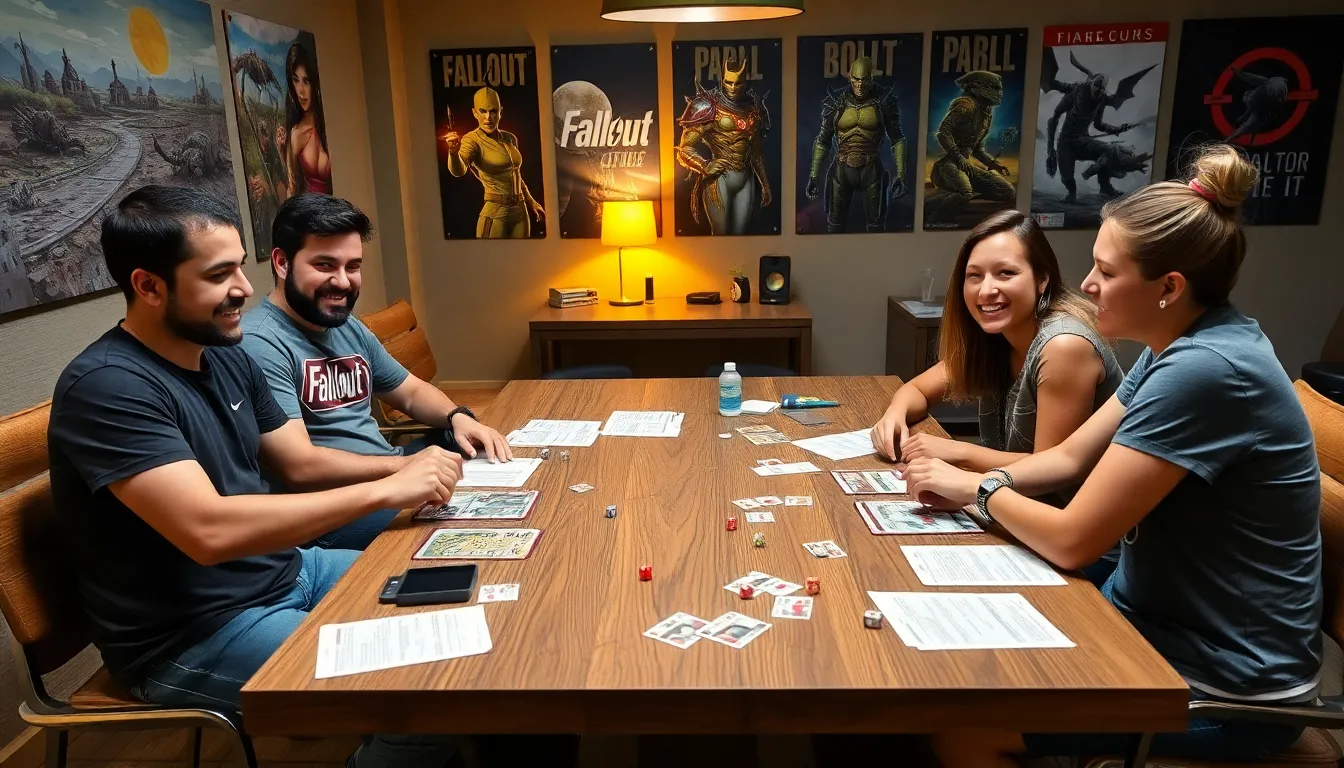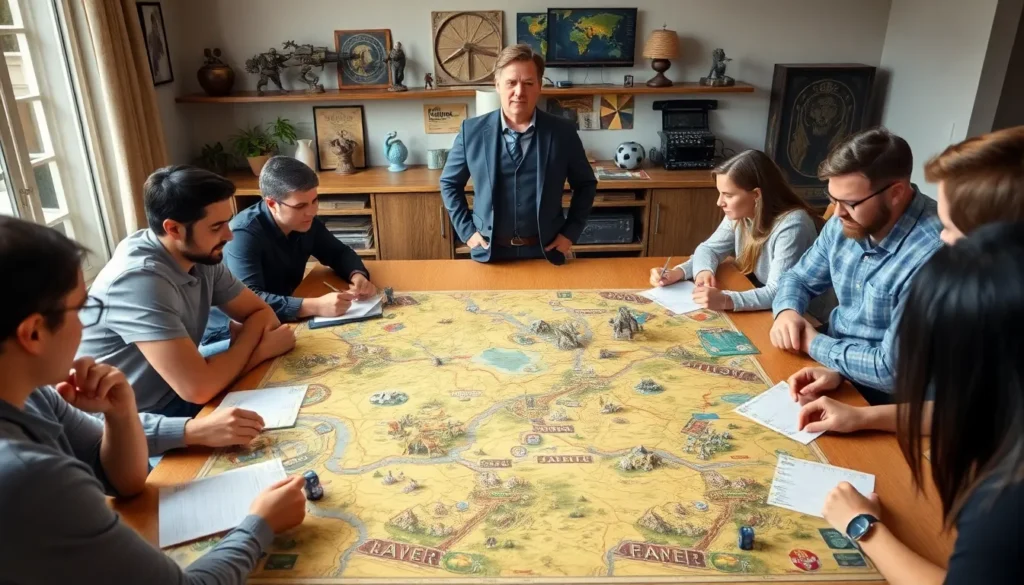Table of Contents
ToggleImagine a world where the dinner table transforms into a post-apocalyptic battleground, and your closest friends become the unlikely heroes (or villains) navigating the wreckage of civilization. Intrigued? Welcome to the Fallout Tabletop RPG, where imagination reigns supreme and every roll of the dice can lead to glory or calamity. Let’s embark on this journey through nuclear wastelands and moral dilemmas, discovering what makes this RPG a gem in the gaming universe.
Overview of Fallout Tabletop RPG

The Fallout Tabletop RPG invites players into a universe sprawling with dangers, opportunities, and a sense of dark humor that permeates the vast landscape. Drawing inspiration from the beloved video game series, this tabletop edition encapsulates the essence of survival in a world shattered by nuclear devastation. In this RPG, players create unique characters, embark on quests, and interact with a richly detailed environment while navigating the moral complexities typical of the franchise. It’s a blend of strategy, role-playing, and sheer imagination, making it an engaging experience for beginner and seasoned players alike.
The History of Fallout as a Franchise
Originally debuting in 1997, Fallout revolutionized the RPG genre with its unique blend of humor, thrilling gameplay, and a retro-futuristic aesthetic. Over the years, the franchise has expanded through various titles, each adding layers to its rich lore and world. The shift from a single-player focus in Fallout 1 and 2 to larger, more interconnected worlds in Fallout 3 and beyond showcased its evolution. The introduction of Fallout 76, although met with mixed reviews, further cemented the franchise’s adaptability in the modern gaming landscape. This historical foundation provides a deep backdrop for the tabletop RPG, allowing players to tap into a well of narratives that span decades.
Core Mechanics and Gameplay Features
Character Creation and Development
Character creation in Fallout Tabletop RPG is an intricate process that encourages players to think deeply about the personalities and backgrounds of their avatars. Players can choose from various options, allowing for diverse storytelling and gameplay experiences. Do they want to be a brahmin herder from the Midwest or a scavenger lurking in the shadows of New Vegas? The choice is theirs, and it significantly impacts the game’s narrative.
Unique Attributes and Skills
In this RPG, attributes and skills define characters, influencing gameplay mechanics. Players will jump into different categories like strength, intelligence, and luck, with skills ranging from lockpicking to charisma-based interactions. This system grants flexibility and depth, creating rich storytelling opportunities that reflect players’ choices. When actions lead to unexpected consequences, the impact is often laugh-out-loud funny or agonizingly poignant, capturing the essence of the Fallout series.
The Role of Perks
Perks are another key element, allowing players to customize their characters, enhancing their unique abilities. These perks can include everything from increasing damage resistance to social perks that boost interaction in a post-apocalyptic setting. The choice of perks can significantly affect a character’s effectiveness in different scenarios, shaping the entire gameplay experience. Balancing choices like these brings strategy to the forefront, requiring players to consider their decisions carefully.
Setting and Worldbuilding
Exploring the Wasteland: Locations and Factions
One of the hallmark features of Fallout is its vast and varied wasteland. From the ruins of cities to hidden underground vaults, players will explore a range of locations rich in lore and opportunities for adventure. Factions play a significant role, each with their unique agendas, allowing players to ally with or oppose different groups. Whether they choose to fight alongside the Brotherhood of Steel or pursue their own path of chaos, the decision-making process shapes not only their journey but the world around them. This world feels alive, rife with possibilities and consequences.
Nuclear Fallout: Themes of Survival and Morality
Strategies for Game Masters
Game Masters (GMs) play an essential role in facilitating the Fallout experience. Strong storytelling skills are crucial, as the GM needs to weave narratives that engage players while also introducing challenges. Incorporating themes of survival and moral ambiguity can elevate the gameplay, forcing players to make tough decisions that affect their characters and the ongoing story. A good GM will ensure the environment is immersive while balancing the game’s pace to keep players engaged.
Tips for Engaging Players
To keep players invested, GMs should encourage character backstories and personal goals. Providing opportunities for players to showcase their skills and make impactful decisions can enhance their excitement. Inclusion of unexpected events or twists keeps the gameplay dynamic and ensures that each session feels fresh and unpredictable.







